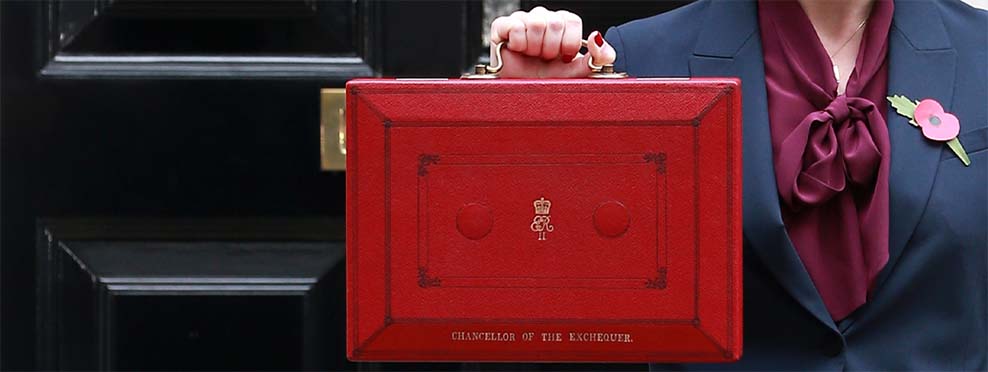Chancellor Rachel Reeves has delivered her first Budget detailing the Government’s tax and spending priorities for the year ahead. This marks the second Budget of 2024, following Conservative Chancellor Jeremy Hunt’s pre-election statement in March.
Overall, the statement was characterised by a series of tax increases designed to raise £40 billion in extra revenue, the majority of which is set to fall on employers. However, there were also a range of measures that may affect Police Officers and other working people directly, including changes to inheritance tax, stamp duty, child benefits and transport costs.
Ms Reeves’ Budget also set out spending priorities for the year ahead, including several areas that will affect policing.
No employee tax changes – but a hike for employers
The Budget confirmed that workers won’t see any changes to their rates of income tax or National Insurance (NI), but Ms Reeves did state that freezes to tax thresholds will end in 2028/29, at which point they will rise in line with inflation. This will mean that, as your pay grows from 2028/29 onwards, you’ll be able to earn more before moving up into a new tax bracket.
However, employer contributions to NI are set to rise by 1.2 percentage points to 15% from April 2025, while the threshold at which employers start paying NI will fall to £5,000. Public sector employers, including the Police, aren’t exempt from this change, which is expected to raise £25 billion a year.
While this means you won’t see any immediate changes in your pay packets, higher employer contributions could mean that Police services rethink hiring and pay rises in future reviews. However, it’s also important to note that public sector employers could receive additional funding to compensate for the increase in NI.
Tax rises affect inheritances, capital gains and house buyers
There were few direct changes to pensions as, despite some forecasts before the Budget, there will be no lower cap introduced on the amount of cash you can take out of your pension as a lump sum. However, the Chancellor did confirm that any inherited pension pots will now be included in inheritance tax calculations, which could increase the number of estates covered by the levy.
Elsewhere, rates of Capital Gains Tax – paid on profits made from the sale or disposal of assets – have also increased. The lower rate of the tax will go up from 10% to 18% and the higher rate from 20% to 24%. Remember, any amounts invested in a Stocks and Shares ISA is not subject to Capital Gains Tax. So, against all the pre-budget fears on ISA changes, investing into a Stocks and Shares ISA could be even more favourable as a tax efficient option for your savings.
Savers will face no changes to the amounts they can put into their accounts, with annual limits to remain at £20,000 for ISAs, £4,000 for Lifetime ISAs and £9,000 for Junior ISAs and Child Trust Funds. However, the Treasury confirmed that the proposed ‘British ISA’, which would have given savers an extra £5,000 to invest in UK companies tax-free, has been scrapped after receiving a mixed reception in consultations.
Officers looking to purchase a new home may also be impacted by changes to stamp duty. Previously, this only applied to first-time buyers on purchases over £425,000, but from April 2025 this will drop to £300,000.
It’s worth remembering if you’re a first-time buyer that, with a Lifetime ISA, you can save up to £4,000 a year tax-free towards buying your first home and get a 25% Government bonus on top. This might help cushion the impact of any additional stamp duty you have to pay.
For existing homeowners looking to move, the threshold for main properties will also be cut in half, from £250,000 to £125,000. Stamp duty paid on purchases of second homes, meanwhile, will increase from 3% to 5%.
Child benefit reforms scrapped
In the previous Budget in March, then-Chancellor Mr Hunt introduced several reforms to child benefit payments. This included raising the level at which the benefits begin to be withdrawn and moving to a system that would calculate rates based on household income rather than individual pay. However, the new Budget has confirmed the switch from an individual to a household approach won’t go ahead on the grounds that it’s too costly.
The current system has been criticised as unfair as it means, for example, that a household with one working parent earning more than £50,000 would see their child benefit reduced, while a household with two parents each earning £50,000 would receive the benefit in full.
How changes to transport and supermarket costs affect your pocket
It had been suggested that one way for the Government to raise extra revenue would be to increase fuel duties. However, Ms Reeves confirmed the current freeze in duty will be kept for another year, maintaining the 5p cut introduced by the previous Government.
While this is welcome news for drivers, those who commute on public transport may face extra costs. It was confirmed that regulated rail fares will rise by 4.6% in 2025 – above the rate of inflation. Caps on single bus fares will also increase from £2 to £3, though this will not affect transport within the capital, as Transport for London uses a different funding system.
Meanwhile, at the supermarket, taxes on alcohol will rise in line with inflation. However, duty on draft alcohol will be reduced by 1.7%, which the Chancellor said equates to a penny off a pint at the bar.
There will also be further tax rises on tobacco and vaping products, with duties on tobacco increasing by 2% above the retail prices index and hand-rolling tobacco up by 10%. Vaping products will be subject to a new flat-rate tax of £2.20 per 10ml of liquid from October 2026.
Policing facing efficiency savings
With much of the new revenue earmarked for services such as the NHS and education, the Police will be required to find a range of new efficiency savings. In real terms, the Home Office will see its budget cut by 2.7% in the year ahead, although the statement confirmed an increase in the core Government grant for Police forces.
While the Chancellor said that efforts to recruit an additional 13,000 neighbourhood Officers and Police Community Support Officers will go ahead, this will need to be paid for by boosting efficiencies and ending “wasteful contracts”. The Budget document stated that these efforts will also enable Officers to spend more time on the frontline tackling crime.
If the Budget has got you thinking and asking questions about your own financial situation, you might be able to get some answers at one of our educational seminars. These events cover various topics and goals, from saving regularly to understanding your Police pension.










